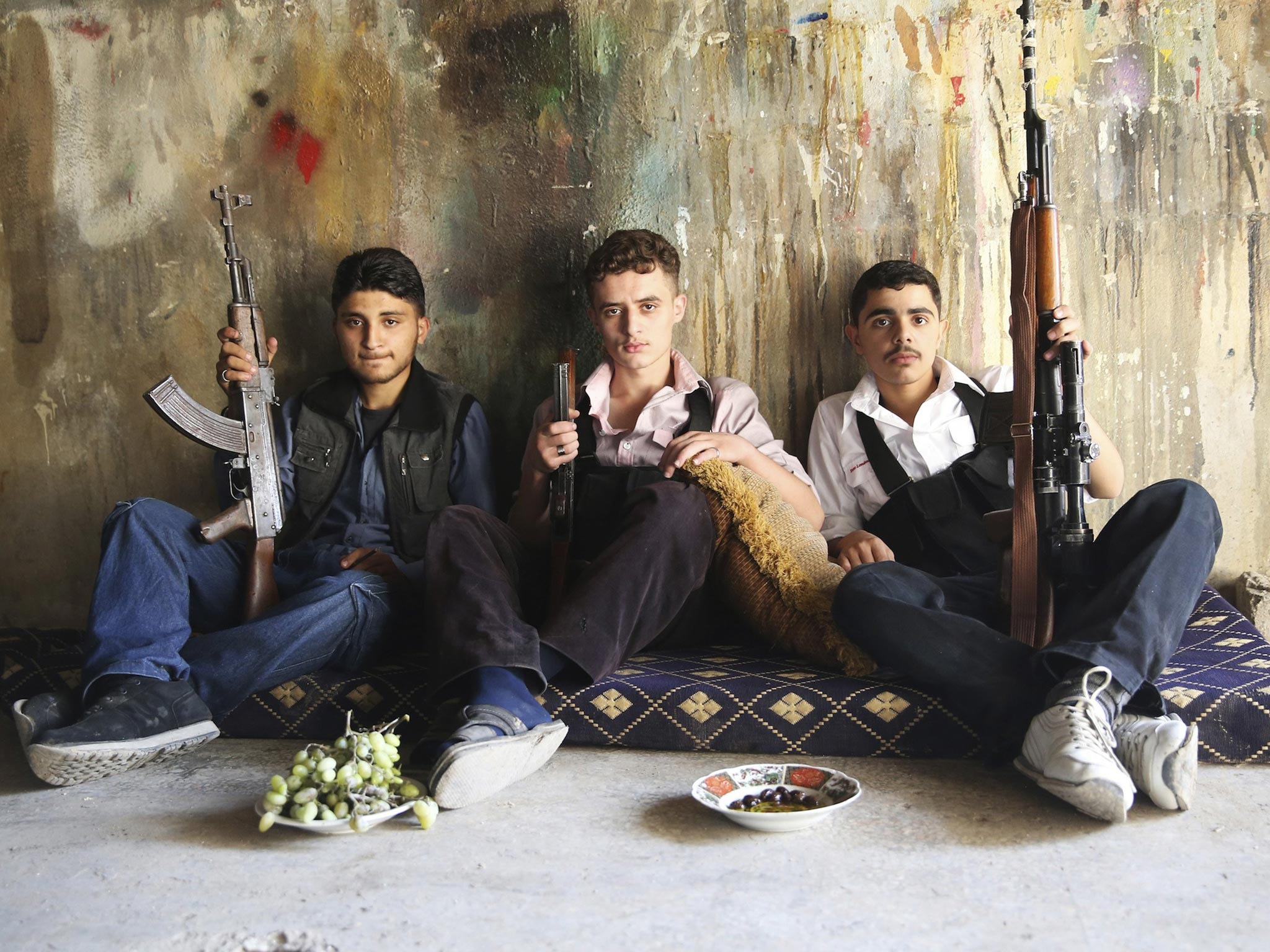A Syrian solution to civil conflict? The Free Syrian Army is holding talks with Assad's senior staff
Secret approach to the President could reshape the whole war


Six weeks ago, a two-man delegation arrived in secret in Damascus: civilians from Aleppo who represented elements of the Free Syrian Army, the rebel group largely composed of fighters who deserted the regime’s army in the first year of the war. They came under a guarantee of safety, and met, so I am told, a senior official on the staff of President Bashar al-Assad. And they carried with them an extraordinary initiative – that there might be talks between the government and FSA officers who “believed in a Syrian solution” to the war.
The delegation made four points: that there must be an “internal Syrian dialogue”; that private and public properties must be maintained; that there must be an end to – and condemnation of – civil, sectarian, ethnic strife; and that all must work for a democratic Syria where the supremacy of law would be dominant. There was no demand – at least at this stage – for Assad’s departure.
The reply apparently came promptly. There should indeed be “a dialogue within the Syrian homeland”; no preconditions for the dialogue; and a presidential guarantee of safety for any FSA men participating. And now, it seems, another remarkable development is under way: in seven rebel-held areas of Aleppo, most of them under the control of the FSA, civil employees can return to work in their offices, and government institutions and schools can reopen. Students who have become militiamen over the past two years will be disarmed and return to their classrooms.
Some members of the FSA have formed what they call the “National Union for Saving Syria”, although members of the political opposition in areas outside government control disrupted meetings by condemning the government army and, according to those involved in the “Union”, making sectarian comments and condemning Shiites and Iran. Last week there were several defections of FSA units to the al-Qa’ida-linked al-Nusra Front, which has complicated matters still further. If the FSA is prepared to talk to the regime, how many are now left to take part in future agreements between the two sides?
For months now, pro-regime officials have explored how they might win the army defectors back to their side – and the growth of al-Nusra and other Islamist groups has certainly disillusioned many thousands of FSA men who feel that their own revolution against the government has been stolen from them. And in areas of Homs province, it is a fact that fighting between the FSA and the army has virtually ceased. In some government-held villages and towns the FSA are already present without being molested.
And the advantages to Assad are clear. If FSA men could be persuaded to return to the ranks of the regime’s army in complete safety, large areas of rebel-held territory would return to government control without a shot being fired. An army reinforced by its one-time deserters could then be turned against al-Nusra and its al-Qa’ida affiliates in the name of national unity.
The Islamist fighters in the Syrian opposition are certainly a source of deep concern to everyone involved in the war – not least, of course, the Americans, who continue to dither over whether they should give weapons to the rebels. Had the US administration followed John McCain’s advice, for example, some of the arms that might have been given to the FSA would already be in the hands of al-Nusra now that three units within the FSA have gone across to the Islamists.The Islamist fighters in Syria are meanwhile turning into a serious threat to the very existence of the country’s Christians. Bishops and patriarchs from across the region met in Beirut last Friday to lament the exodus of the Christians of the Middle East; Catholic Maronite Cardinal Bechara Rai of Lebanon described how for Christians, “the ‘Arab Spring’ had turned to winter, to iron and fire”.
The prelates were particularly upset at the massive damage to churches in Raqqa – now under the control of the al-Nusra group – and at the al-Nusra attack on Maaloula. I saw myself last week how perverse was this assault on the largely Christian Syrian town north of Damascus. In Christian homes, crucifixes had been smashed, but the al-Nusra invaders seemed to take a perverse pleasure in wrecking their homes. In one basement flat they had emptied the fridge of food and stuffed it full of shoes.
Now that’s something to bend your mind!
Curious facts colour UN's report
So now the world has convinced itself that the Assad regime fired the sarin gas shells on 21 August, it really is time to read the full version of the UN chemical weapons inspectors' report from Syria. The details of the death and suffering of the innocents of the Ghouta area of Damascus are fearful. Two brothers, it transpires, were the only survivors of their family of 40 who all lived in the same building. But one or two paragraphs need re-reading.
“A leader of the local opposition forces (sic) who was deemed prominent in the area…was identified and requested to take 'custody' of the [UN] Mission,” it says. Naturally the UN inspectors would want to be kept safe. But they were, in effect, in the hands of the rebels. A list of questions for survivors was also “circulated to the opposition contacts”.
Rather more worrying, however, is a short paragraph on page 22. At the sites where sarin gas missiles landed, it says, the inspectors found that “the locations have been well traveled (sic) by other individuals prior to the arrival of the Mission… During the times spent at these locations, individuals arrived carrying other suspected munitions indicating that such potential evidence is being moved and possibly manipulated.”
Manipulated? Odd, but I don't remember that quotation in the media accounts of the inspectors' report…